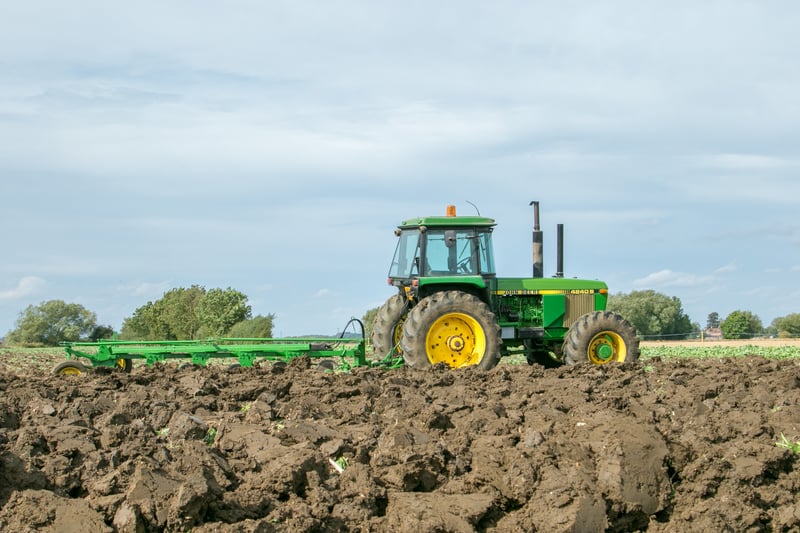Outfitting Older Tractors With Today's Tires
It was interesting to discover an article in the Star Tribune—Minnesota’s largest newspaper—about the resurgence in popularity of tractors from the late 1970s and early 1980s. Lately, these machines have been attracting a lot of attention at auctions across the Midwest and it’s not coming from collectors. Rather, it’s cost-conscious farmers driving demand for this classic equipment.

Why Some Farmers Favor Older Machines
There are numerous factors why some farmers are choosing to invest in older equipment—to name a few, these machines are more affordable, well built, and easy to repair. A farmer can purchase a 30- or 40-year-old tractor with similar horsepower to one of today’s models for a fraction of the price of the new machine. Unlike modern tractors, older models aren’t equipped with sophisticated software, so many mechanically oriented farmers can handle repairs themselves.
Balancing Technology and Practicality
There have been a lot of positives brought to agriculture by high-tech: automation, precision farming, and the IoT (Internet of Things) are helping farmers achieve higher yields and increase their productivity. However, there’s still something to be said for firing up a classic tractor. And while some folks like engineers at Tesla, Rivian, and AutoSteer might stare at a vintage Mustang and wonder how they can make it better, others just want to step on the clutch, romp on the gas, and roll old school.
Ag Tech and Us
We’ve been amazed by the results we’ve seen from those at the cutting-edge of ag, like our collaboration with Cedar Valley Innovation and Precision Inflation, but are also understanding of the real-world challenges (time, bandwidth, and money) facing our customers. No matter whether you own a tractor at the forefront of innovation or are using an older machine, one part of your tractor (and operation) that will benefit from a high-tech upgrade is your tires.
New Tires for Older Farm Equipment
Just because your tractor doesn’t have automatic steering and an onboard computer doesn’t mean it won’t benefit from today’s tires. While the overwhelming majority of tractors from the late 70s and early 80s came with bias tires, more and more modern farmers are turning to radials. A radial tire—with a big, even footprint, and the right tread pattern—can deliver more horsepower to the ground, increase fuel economy, improve steering and braking, and make a tractor more efficient. Radial tires do all this by maximizing traction, minimizing slip, and without a single engine adjustment. Add in that they provide a far more comfortable ride and it’s a slam dunk!
High-Tech Tires for Older Farm Equipment
Radials are a wise upgrade for most older farm machinery, but you can blast your older farm equipment into the future with IF/VF tires. IF tires can carry up to 20% more weight at the same inflation pressure as a standard radial, or carry an identical load as a standard radial while operating at 20% less tire pressure. VF tires push the capabilities to 40%! Being able to carry more load is a great way to improve your operation’s productivity and efficiency while being able to operate at lower inflation pressures, which is essential for minimizing soil compaction.
Growing Profits on the Farm
Kris Folland, who grows corn, wheat, and soybeans, along with raising cattle on 2,000 acres near Halma in the northwest corner of Minnesota, is quoted in the Star Tribune article saying, “The main reason we do this is to make money...Older equipment is a way to reduce your cost per bushel to become more profitable.” Innovative tires like Alliance radials and our AgriFlex IF/VF tires are another way to give a machine a boost. To learn more about how Alliance tires can help your new, or old, tractors maximize their performance (and your profits), contact your local dealer or rep today.


